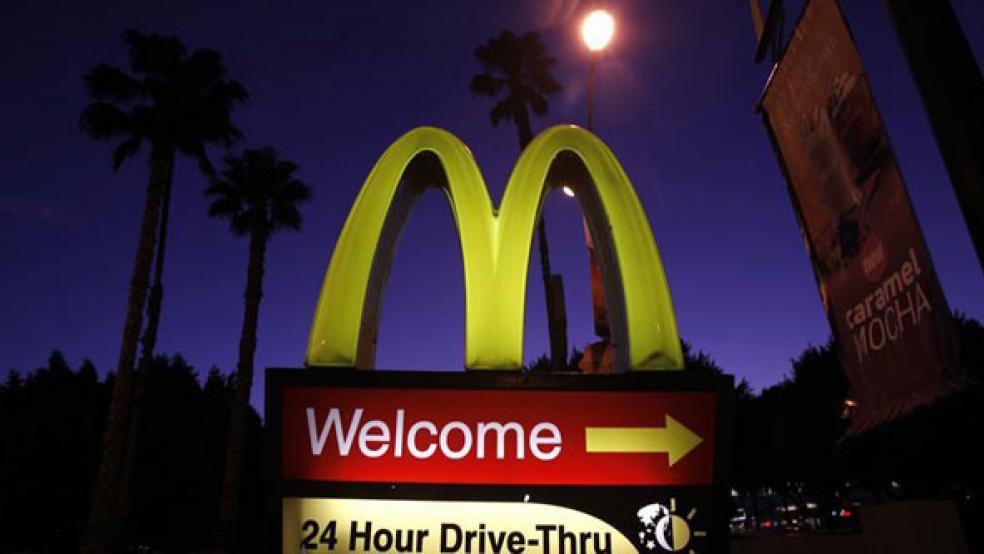It was easy to miss the July 29 statement of Richard Griffin, the general counsel of the National Labor Relations Board who is considering a radical change in how the parent companies of small business franchises are deemed responsible for those franchises. His target: McDonald’s USA.
Griffin ruled that the parent company could be held responsible for labor violations by its franchise owners, the thousands of restaurant operators that hire and fire workers and run about 90 percent pf McDonald’s locations in the U.S.
Related: Taxpayers Hit Twice by Fast-Food Pay Practices
Griffin’s idea is genius, if you’re a class action lawyer. Instead of suing a modest little McDonald’s franchise for a pittance, why not also sue the mother ship and really cash in? In a compelling analysis by Diana Furchtgott-Roth of the Manhattan Institute on e-21, the NLRB’s motives are obvious.
First, at a time when labor unions are declining in power, influence and membership in the U.S., a move against franchise owners could lead to unionizing McDonald’s 14,000 franchise locations. Furchtgott-Roth says that would mean a substantial union revenue.
“Initiation fees to join a union can range from $50 to $100. The union gets not only a stream of dues, about 2 percent of paychecks, but also a stream of initiation fees. I calculate that unions stand to gain about $155 million from unionizing half of McDonald's workforce, $45 million of that from initiation fees alone,” Furchtgott-Roth says.
Furchtgott-Roth cites a University of Arizona study that shows turnover among McDonald’s employees at 157 percent annually. She says most people leave within three or four months, suggesting that these are temporary jobs for students and others who are looking for full-time work. To impose union fees and other costs on this group does not seem to match their commitment.
Related: Could Fast Food Robots Steal McJobs?
If Griffin’s ruling is upheld, McDonald’s will be the first among many to be targeted. The food industry is obvious — Subway, KFC, Burger King, 7-Eleven, Dunkin Donuts, etc. But once you start down this path, you’re looking at hotels (Marriott International; Wyndham Hotel Group; InterContinental Hotels); real estate (Coldwell Banker, Re-Max); fitness centers (Gold’s Gym, Snap Fitness), and a variety of car services, cleaning services and hundreds of others.
So what will franchise owners do with the 8 million people who are employed by their businesses? Many will go robotic. In a recent article in The Fiscal Times, author Martin Ford says, “McDonald's has already announced plans to install touch-screen ordering systems in over 7,000 European locations. To me, it is not difficult to imagine many of the ideas being utilized [in Japan] eventually being deployed throughout the fast food and beverage industries. If automated preparation and off-site store management work for sushi, then why not for burgers or lattes?”
Ford’s latest book, The Lights in the Tunnel: Automation, Accelerating Technology and the Economy of the Future, is a peek into the future of robots and jobs and how quickly companies are replacing rote work with artificially intelligent bots. For many, Richard Griffin’s sue one, sue all plan could become the job killer of the decade.
Top Read from The Fiscal Times:




